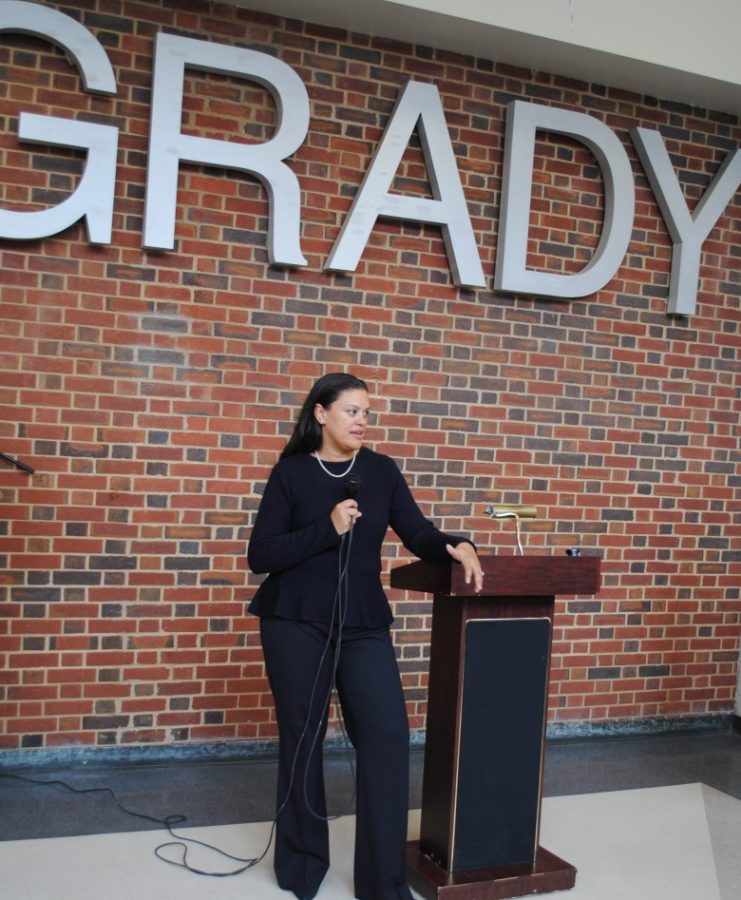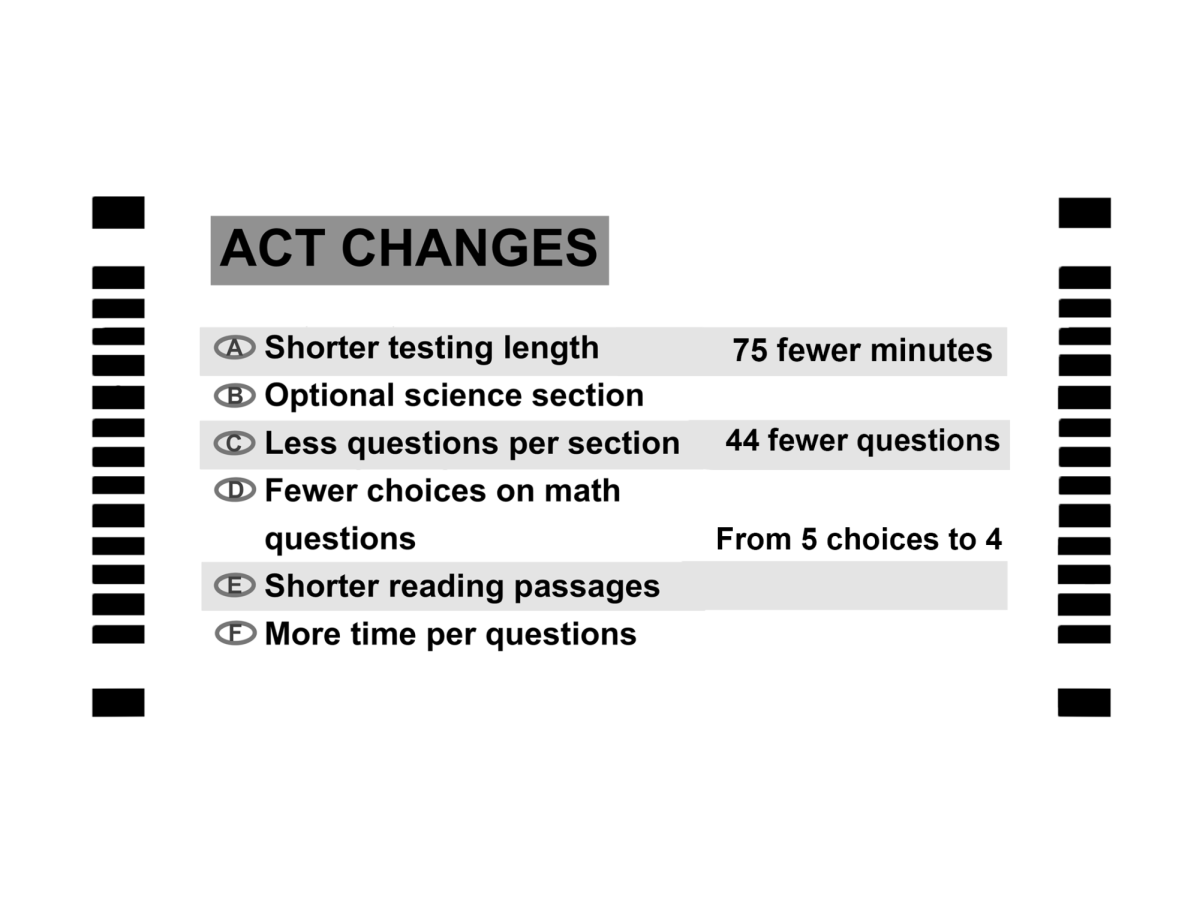
Meria Carstarphen is not one to back down in the face of a challenge.
When she arrived in Austin in 2009 as the new superintendent of the Austin Independent School District, one in four students did not graduate. Now, after five years at the helm of the district, during which the graduation rate rose by almost 10 percent, Carstarphen has been voted APS’s new superintendent. She faces a district in crisis, saddled with a 59 percent graduation rate and reeling after several controversial personnel changes and the aftermath of one of the most widespread cheating scandals in history.
“People will say, ‘Oh, just go to Atlanta: half the size, double the problems,’” Carstarphen half-joked at an open house at Grady on March 29 during which she introduced herself to the community. “But really, all districts have these kinds of problems and challenges. It’s how you turn them into opportunities that keep them from consuming you.”
The APS board evidently thinks she is up to the challenge, voting unanimously on April 14 to confirm her.
“I think she is absolutely the right person at the right time for Atlanta,” board member Leslie Grant said.
Another board member, Cynthia Briscoe Brown, agreed.
“She brings a tremendous energy and enthusiasm and a long track record of bringing diverse groups of people together,” Briscoe Brown said.
One of the reasons the APS board supported Carstarphen was her history of improving student outcomes, particularly among minority students, board member Matt Westmoreland said.
“[AISD] has an 82.5 percent graduation rate,” Westmoreland said. “They have a 79 percent graduation rate for African-American men. Atlanta Public Schools has a 35 percent graduation rate for African-American men. Their special-education graduation rate is higher than our overall graduation rate.”
John Fitzpatrick, executive director of the educational advocacy organization Educate Texas and the parent of two children in AISD, agrees that Carstarphen has helped disadvantaged students in Austin.
“I think she is very courageous intellectually and as a leader in focusing on college and career readiness for all students, but particularly for African American, Hispanic, first-generation, low-income students,” Fitzpatrick said, “and I think that was one of the hallmarks of her in Austin.”
Carstarphen’s tenure in Austin was not without controversy, however.
Some accuse her of leaving parents and community members out of the decision-making process.
“She would visit schools; she was highly visible,” Deena Perkins, an AISD parent, told The Southerner. “But … when it came down to decisions and just the day-to-day things, she wasn’t as receptive to community input. Frankly, she just liked to do things her way.”
During the districtwide principal changes that included the removal of Grady Principal Vincent Murray, community members demanded more input in the decision-making process. In an exclusive interview with The Southerner, however, Carstarphen emphasized that the removal of principals is a process in which the community doesn’t necessarily get a say.
“The work around monitoring and evaluating is very statutorily driven by a lot of things that we have to do to ensure that it’s a process that meets the expectations of the law and what we’re supposed to do around educator quality,” Carstarphen said.
She was quick to point out that community members can play a role in the process through “parent surveys, student satisfaction surveys,” and other mechanisms to “tell us about the experience you’re having and whether or not you’re satisfied.”
Ann Cramer, the head of the APS Superintendent Search Committee and wife of physics teacher Jeff Cramer, believes that Carstarphen will let the community have a voice.
“Her method of work is a collaborative style, so she’ll be engaged, informed and involved with the community,” Cramer said. “She’ll have a sense of that pulse.”
Board chair Courtney English agrees with Cramer.
“Far too often, we made decisions that have kind of divided people,” English said, “and she really has an ability to engage in a collaborative process to bring folks together, make sure that all parties are at the table and then we make those decisions together, and I think that’s absolutely critical moving forward.”
Fitzpatrick also thought that Carstarphen did a good job of listening to the community in Austin.
“I think, overall, she worked really hard to try to make sure that the community had a voice,” Fitzpatrick said. “… Both on things where I agreed with her or I disagreed with her, I always saw her being open to feedback and parent and community input.”
Perkins, however, pointed to a bond package that Austin voters partially rejected last year as evidence of Cartsarphen’s shortcomings in communicating with the public. The two propositions that failed in the package would have relieved overcrowded schools and provided funding for academic programs, fine arts and athletics.
“I don’t know that she was directly responsible for that, but again, being the leader, it was kind of felt that she didn’t articulate clearly enough to the voters why this was needed, and really didn’t push enough for that,” Perkins said.
Another criticism levelled against Carstarphen is that she did not stay long enough in the districts she governed to make meaningful change. Carstarphen was the superintendent of Saint Paul Public Schools from 2006 to 2009, before her tenure at AISD.
“She tends to kind of bail when things get bad,” Perkins said.
Cramer, however, doesn’t think Carstarphen will leave APS after a couple of years.
“The wonderful thing about Dr. Carstarphen is that she not only has success, she not only has an amazing way of working, but she also really wants to be here,” Cramer said. “She’s not here as a hit-and-run, she’s here for the long haul.”
Carstarphen is taking over a district still recovering from the cheating scandal that occurred under former APS Superintendent Beverly Hall. Though she still believes strongly in using test scores as a tool to hold teachers and students accountable for results, she emphasized that other things matter in an education.
“It’s called a balanced scorecard,” Carstarphen said. “It’s the concept that, yes, academics is a part of the story, but there are other things, like school climate, like I said, student survey results, things like arts and athletics and attendance and engagement, so there are ways to show that a school has more going for it.”
Cramer thinks Carstarphen’s balanced approach will be beneficial.
“She is very committed to the whole child and understanding what it makes and takes to really be educating a child,” Cramer said. “… The test scores will be a part, but it will be a smaller part, because the rest is, ‘How is the child progressing?’”
Grant agrees.
“The hard-line tester mentality that some school systems have fallen into, I’m not concerned about that,” Grant said.
Carstarphen remains optimistic about the district’s future.
“I’ve deliberately tried to get ready for this kind of work,” Carstarphen said at the open house. “I feel like I’m ready, I feel like I have hope. I feel like I have the passion to do it, and I feel like I’ve seen that mirrored from APS.”
Cramer is certainly among those to whom Carstarphen is referring.
“I am thrilled, delighted, and so proud of the process and the decision,” Cramer said. “We really did get an amazing, perfect candidate for Atlanta at this time.”













